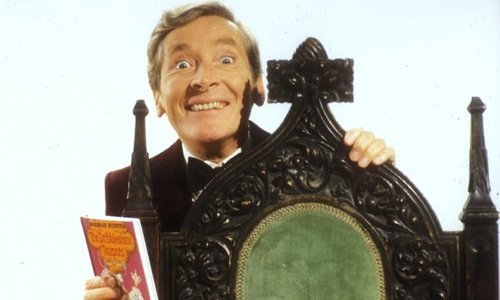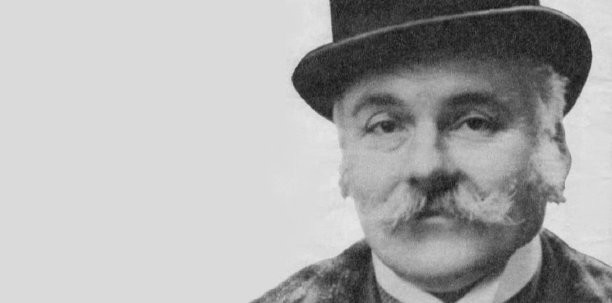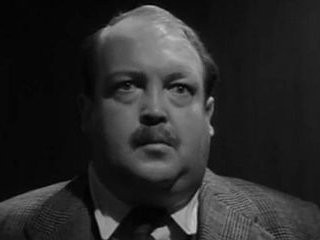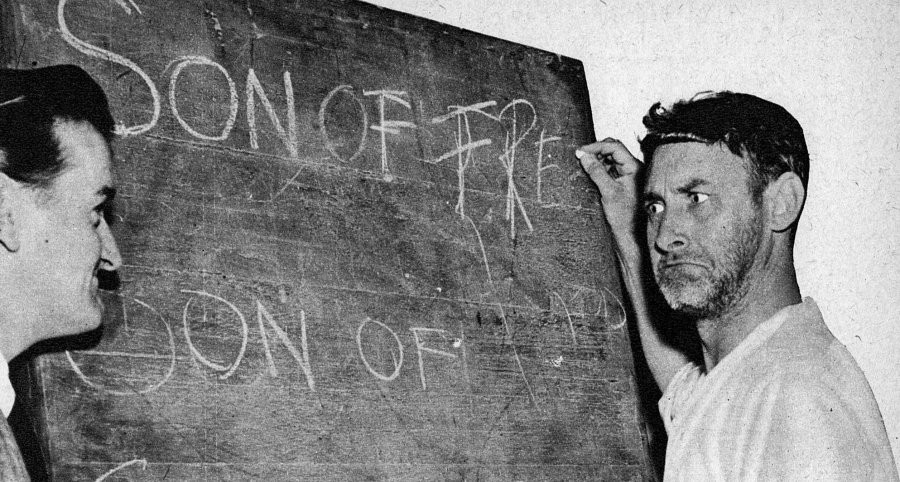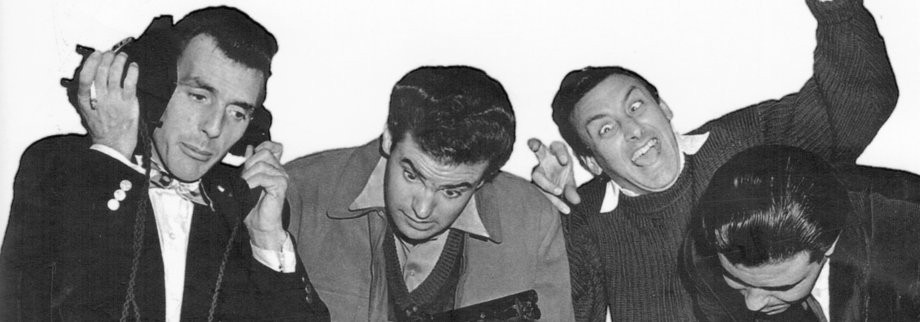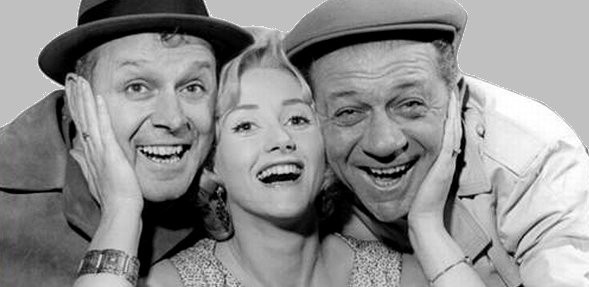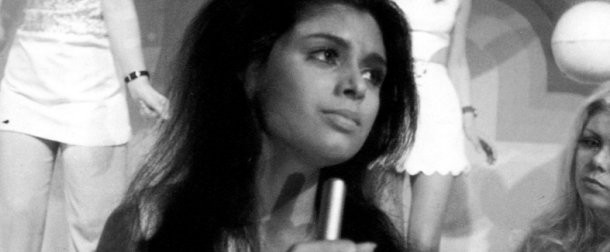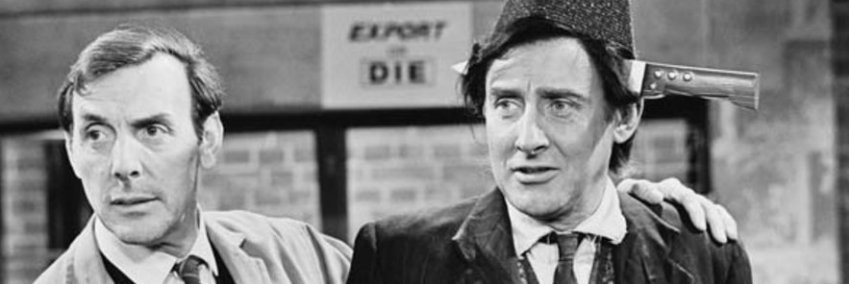
Curry and Chips
1969 - United KingdomIn the history of British television few sitcoms have courted as much controversy as Till Death Us Do Part. But amidst outcry from certain sections of the viewing public on the right wing opinions of Alf Garnett, series creator/writer Johnny Speight came up with Curry and Chips, a series that in spite of starring two of British comedy's all-time iconic figures, Eric Sykes and Spike Milligan, proved too hot in subject matter for the IBA, who ordered its cancellation after just six episodes.
The main setting for the series (the first LWT sitcom to be broadcast in colour) was the canteen and factory floor of the aptly named Lillicrap Ltd, manufacturers of cheap souvenirs and seaside novelties. Milligan, (wearing black make-up) played an Asian employee with the unlikely name of Kevin O'Grady. This he claimed was a result of having an Irish father, which also led to his nickname of 'Paki-Paddy' (The character as played by Milligan had first turned up in an episode of Till Death Us Do Part). Sykes was the liberally minded factory foreman who often sprang to O'Grady's defence especially when he was faced by the racist taunts of fellow workmates, Liverpudlian's Norman (Norman Rossington) and Dick (Geoffrey Hughes), and Kenny (Kenny Lynch), as a black man who didn't like Pakistani's.
As with Speight's Till Death Us Do Part, the intention of the series was to highlight the futility of racial prejudice and use comedy as a weapon to combat it. However, whereas Alf Garnett's weekly diatribes would highlight the general state of society itself, encompassing the world of politics, permissiveness and class, it may well be that Curry and Chips suffered from concentrating on one subject matter alone.
Along with the copious use of racist terms, Curry and Chips was also accused of being too liberal with its use of expletives, one viewer complaining that a single episodes used the word 'bloody' on 59 occasions (although Eric Sykes could not be accused of this as he flatly refused to use bad language). And where the BBC vigorously defended Till Death Us Do Part stating in a Radio Times article that if you "laugh with Alf Garnett you have been entertained, if you laugh at him you have been entertained and informed-and that's a victory for Johnny Speight", Curry and Chips did not win the same support from the Independent Broadcasting Authority. Speight himself later remarked: "It was the English who were made to look bigoted in the show but the people at the IBA couldn't understand that.
It was London Weekend Television's first year, but only six shows went out. The IBA made LWT take it off, saying it was racist." In spite of the IBA's sensitivity towards matters of racial disharmony they did not intervene when the subject was revived in the later and far more crude Thames produced sitcom Love Thy Neighbour, which debuted in 1972 and ran for eight series until 1975. That same year Milligan returned as a character similar to O'Grady for six episodes of a BBC series entitled The Melting Pot (written this time by Milligan and Neil Shand), although only the first episode was ever aired.
Seen this show? How do you rate it?
Seen this show? How do you rate it?
Published on December 5th, 2018. Written by Laurence Marcus for Television Heaven.


